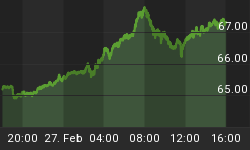
The Japanese Yen was the star performer of 2010 among major currencies with the Swiss Franc and the Australian Dollar trailing just behind. The North American currencies (US & Canadian Dollar) were in the middle of the pack, while the British Pound and the euro were the two clear losers.
Japan's currency was up nearly 14% in 2010 against a trade-weighted basket. The dramatic fall in global interest rates allowed yield differentials among major economies to shrink vs. Japan. The reduced negative carry associated with the yen along with its safe-haven status, allowed the currency index to reach all-time highs. By the end of October, the USD/JPY was threatening the psychological 80Y level before the Ministry of Finance stepped in, intervening in the fx markets for the first time since 2003. The latest bout of strength is once again threatening the lifetime highs, leading to more speculation of intervention heading into the new year.
The euro was the worst performer of 2010, losing more than 7% vs. a trade-weighted basket of currencies. Early in 2010, fears of a sovereign debt crisis developed, concerning various European Union members. This caused bond yields spreads from Portugal, Italy, Ireland, Greece and Spain to widen out dramatically vs. the German Bund. The crisis of confidence of rising debt levels and government deficits climaxed in May, causing the ECB and IMF to step-in. The comprehensive trillion-dollar rescue package managed to calm nerves, allowing the single currency to bottom-out in June. However, recent headlines out of Ireland have put additional pressure on the euro, triggering fresh all-time lows vs. the Australian Dollar and Swiss Franc. The headline risk associated with the EU highlights the ongoing challenges for the currency going into 2011.















